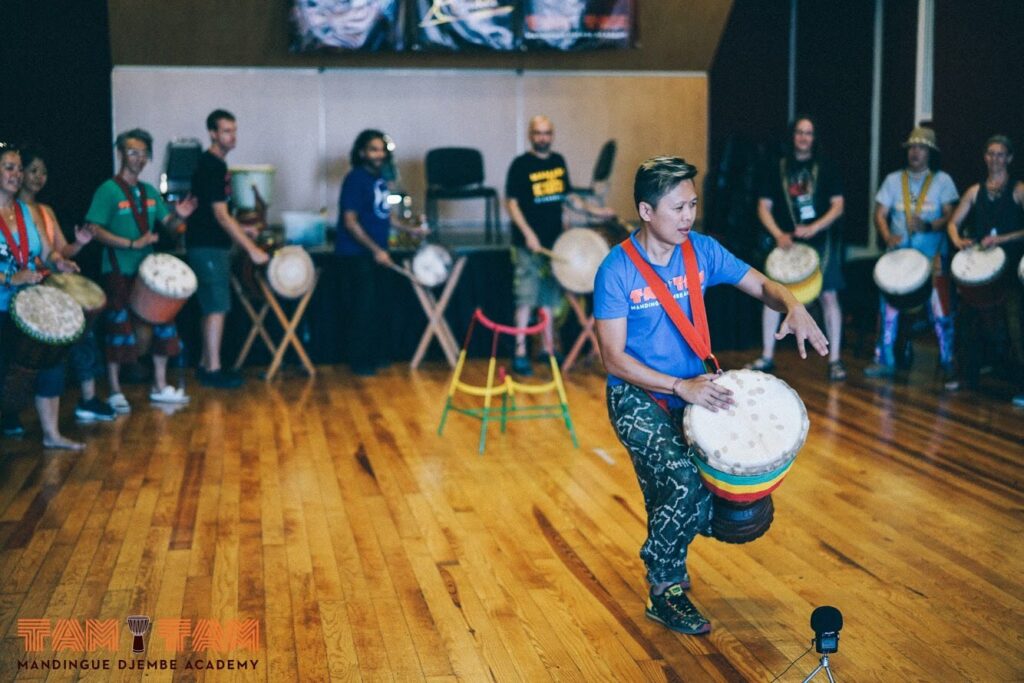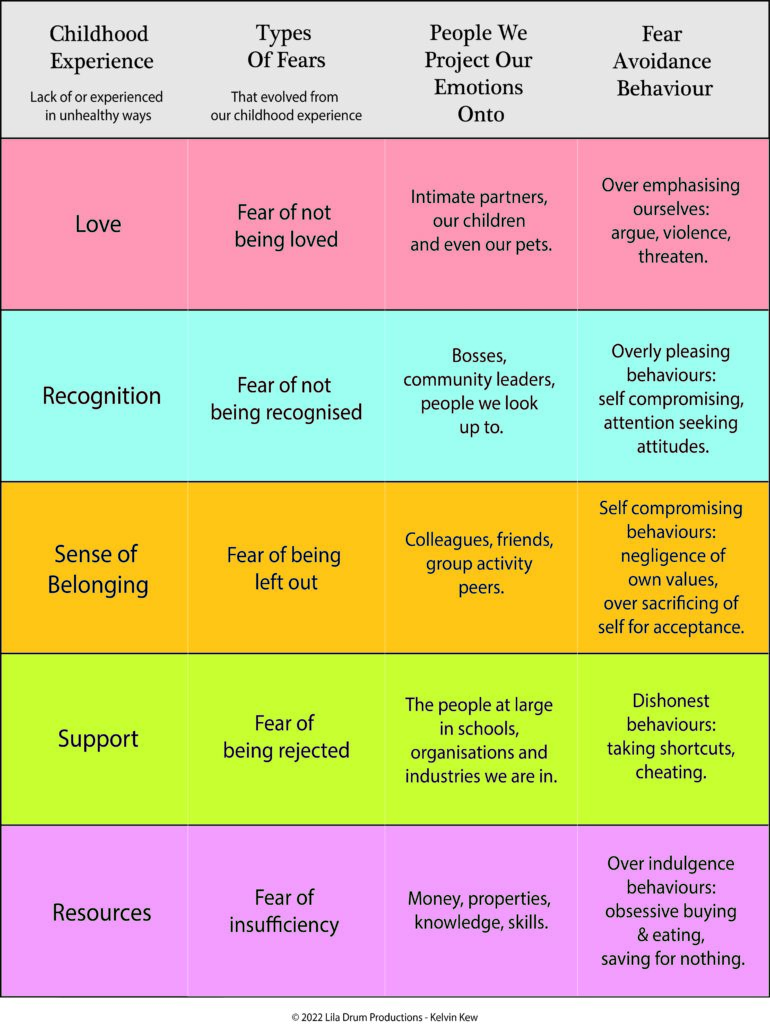5 Types Of Fears That Screw Us Up
by Kelvin Kew
“Ni kan tiyen, sewa tiyen. Ni sewa tiyen, kantiyen”
is a Malinké proverb made popular by the legendary djembe grandmaster Mamady Keïta.
It means “without music, there is no joy, without joy, there is no music.”
One of Mamady’s many symbolic performances is his ‘Pyramid Performance’, where students present what is usually an hour long drumming music composition that features a medley of traditional rhythms mixed with choreographed beats and intriguing solo phrases.
For most people, having to participate in this performance usually comes with anxieties, more so if you are to perform on the same stage with a living legend such as Mamady Keïta. The intensity of the focus required for such performance is so high, that there’s no time for anxieties. The performing drummers experienced only exhilarating beats, pure joy and brilliance from each and every person on stage.
The Five Fears
No, not holding spiders or eating mini octopuses alive, though the latter does freak me out!
Shortly after the successful Bali event, I was appointed by Mamady as his vice president of his international djembe school Tam Tam Mandingue Djembe Academy (TTMDA).
In the eyes of many, being the leading executive of TTMDA worldwide may be a glamorous position. But in fact, I worried about my ability to manage TTMDA well.

Regardless of our talents or capabilities in social circles and workplaces, one way or another we tend to ask ourselves:
What will my bosses or friends think of me?
Can I achieve what I want?
Will my efforts pay off?
Will my ability be recognised?
Do I have enough?
Am I valuable? ! !
The above questions have one thing in common, they are all related to interpersonal relationships with people we encounter. From this perspective, we can trace the sources of these fears to how we communicated with the people whom we depended on the most during our childhood.
In other words, our childhood experiences with our loved ones contributed to how we project our reactions to the people we encounter later on in life. Our reactions are usually base on the following 5 types of fears:
- Fear of not being loved
- Fear of not being recognised
- Fear of being left out
- Fear of being rejected
- Fear of insufficiency
What do we naturally do when we come face to face with a lion?
(Or whenever there’s a wriggling mini octopus on my dinner plate??!)
It is in our primitive nature to run away whenever fear arises. Since primitive times, escaping is a natural mentality in our humans subconscious to help us survive. Hence, most of our default reaction to these 5 types of fears is to run away, or finding ways to avoid facing them.

but they can be also present with other types of fears as well.
In my previous article (The Fearless Mamady Keïta), I shared that like the legendary Mamady Keïta, we all have our own unique ‘lîla’ (the brilliance of our inner child) in each and everyone of us to create betterment for all things around us.
But it is our fears that keep our inner child hiding away. Many have lost touch, or have forgotten the existence of their own inner child. We tend to judge more than we embrace, we tend to be apprehensive instead of loving, and we are less likely to take risks in life that has potential for a more fulfilling life.
Are the culprits the fears we are avoiding to face, or our unwillingness to embrace fears?
Drum Better. Live Better
After my appointment as vice president of TTMDA, I realised I didn’t enjoy drumming as much as I did before. I had let my fears control too much of my mentality that my inner child went hiding away.
The irony is that the very activity which first got me igniting my ‘lîla’ became the work that magnified my unresolved fears from childhood, to a point that it chased away my inner child.
And then I realised, as a djembe drummer, all along I have all that I needed to get back to my own brilliance. The only reason I lost to fears for a brief period is because work at TTMDA had me spent lesser time on drumming.
I needed to get back to my own drumming!
Djembe 1, Djembe 2, Sangban, Kenkeni and Dununba
Playing in a drum ensemble is very much like facing your 5 types of fears.
When all rhythms are played together, you will either be overwhelmed by the myriads of sounds and beats, or be able to embrace them in your consciousness and play along.
I let drumming remind myself that my inner child can coexist with my existing fears.
The brilliance in djembe performance is when the soloist is able to embrace the other 5 rhythms and play in rhythmic harmony with them so that his or her inner child will always surface, and thereby allowing the innate brilliance to shine through.
Coming back to my own drumming allows me to remain in touch with my ‘lîla’, thereby not living a life controlled by fears and losing my brilliance.
Have you been drumming lately ?
I hope my sharing has helped to provide useful insights for you.
I invite you to join me in the journey of accessing our true brilliance :)
